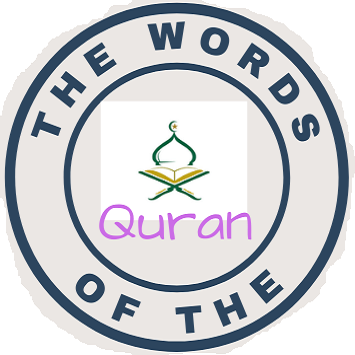Is it permissible to observe Eid-e-Miladun Nabi in Islam?
Eid-e-Mila Dunnabi is a time of joy and sorrow for Muslims. Because on this day, the greatest human being, the forerunner of humanity, Sayyidul Morchalin Khatamunnabiyin Rahmatalli Alamin, the guide of the liberation of humanity, the prophet of all the prophets, the Holy Prophet may God bless him and grant him peace, is the birthday and death day.
Eid Milad-un-Nabi (pbuh) is celebrated on according to Shari'ah to express gratitude to Allah on the occasion of the arrival of the Holy Prophet (pbuh). Among Muslims, this day is observed with great festivity. However, there is much debate among Islamic scholars about this festival. This festival is held on the twelfth of Rabiul Awal, the third month of Hijri.
Read more
Allah says - 'O Messenger, I have sent you as a mercy to the whole world.' (Surah Ambiya: 107) It is declared in the Holy Qur'an - "Surely there has come to you from Allah a bright light (Noor) and a clear Book." (Surat al-Ma'idah: 15) So we must hold on to this light and book and honor it with due dignity.
Allah Rabbul Alamin says - "Surely Allah and His angels are sending blessings upon the Prophet (PBUH). O believers! Send blessings and salutations upon him with courtesy.” (Surah Ahzab: 56). This proves how great is the status of the Prophet (PBUH) and how important it is to observe his Miladunnabi and recite salam and darood upon him.
It is narrated from the famous Sahri Hazrat Abu Darda (RA) that he once accompanied the Messenger of Allah (PBUH) to the house of Hazrat Abu Amer (RA) and found that Abu Amer Ansari (RA) was his own son and gathering other relatives narrated the history of Beladat of Rasulullah (SAW). Allah's Messenger felt great joy in this work and said - O Amer! Surely Allah has opened the door of His mercy for you and the angels are asking forgiveness for you. Those who do like you will be saved like you. Upon hearing the news of the birth of Noor the Prophet (PBUH), the Almighty Abu Lahar freed his maidservant Suaiba and because of this he (Abu Lahab) found peace even in Hell on the night of Miladunnabi every Eid.
Read more
The Holy Qur'an does not mention anything about the 'Milad' of the Prophet (peace be upon him) i.e. his birth, birth time or birth celebration or observance. The birth of any previous Prophet is mentioned in the Quran, but no day, date, month is mentioned anywhere. Similarly, there is no command, encouragement or motivation to observe 'Milad' i.e. to celebrate birth or hold majlis to discuss birth or express joy on birth.
In the second and third centuries of Hijri, Abu Qatada al-Ansari Radiyallahu Anhu said: The Messenger of Allah, may God bless him and grant him peace, was asked about fasting on Mondays. He said, "On this day (Monday) I was born on this day, I received Prophethood." Ibn Abbas said: “The Messenger of Allah (may peace be upon him) was born on a Monday, received prophethood on a Monday, died on a Monday, migrated from Makkah to Madinah on a Monday, and on a Monday, he raised the thousand Aswads. In this way we can know the date of birth of the Prophet sallallahu alayhi wasallam from the hadith. In the light of Sahih Hadith, almost all historians agree that the Messenger of Allah, may Allah bless him and grant him peace, was born on a Monday.
Proponents of celebrating Milad un Nabi (PBUH) on Eid cite verse 81 of Surah Al-Imran in support of their views. In this verse Allah Almighty says - 'O dear Messenger! Remember the incident of the day when Allah took a promise to Ambiya that when a Messenger comes as a witness of the Book and Wisdom that I have given you, you will believe in him and help him.'
They also cited verses 57 and 58 of Surah Yunus as evidence. In this verse Allah Almighty says, “O mankind! There has come to you from your Lord guidance and purity of heart, guidance and mercy for the believers. Say, O Prophet, that they rejoice in the grace of God and His mercy. It is better than hoarding all their wealth.
Finally, in spite of many debates for and against the celebration of Miladunnabi (PBUH) in various Muslim countries of the world, including the Indian subcontinent, this day is celebrated as a festival every year and in some Muslim countries, including Bangladesh, this day is a public holiday.
Special notice and duty when slaughtering animals
Salatul Jumuah/Friday prayer
Rules for performing Qaza prayer
Intention to offer Friday prayers/Salatul Jumuah
The importance and virtue of Friday prayers
Virtue of praying in the first row
The rules of Sahu Sijdah
Youth is the best time of worship in Islam
Salatul Jumuah/Friday prayer
Rules for performing Qaza prayer
Intention to offer Friday prayers/Salatul Jumuah
The importance and virtue of Friday prayers
Virtue of praying in the first row
The rules of Sahu Sijdah
Youth is the best time of worship in Islam




0 Comments